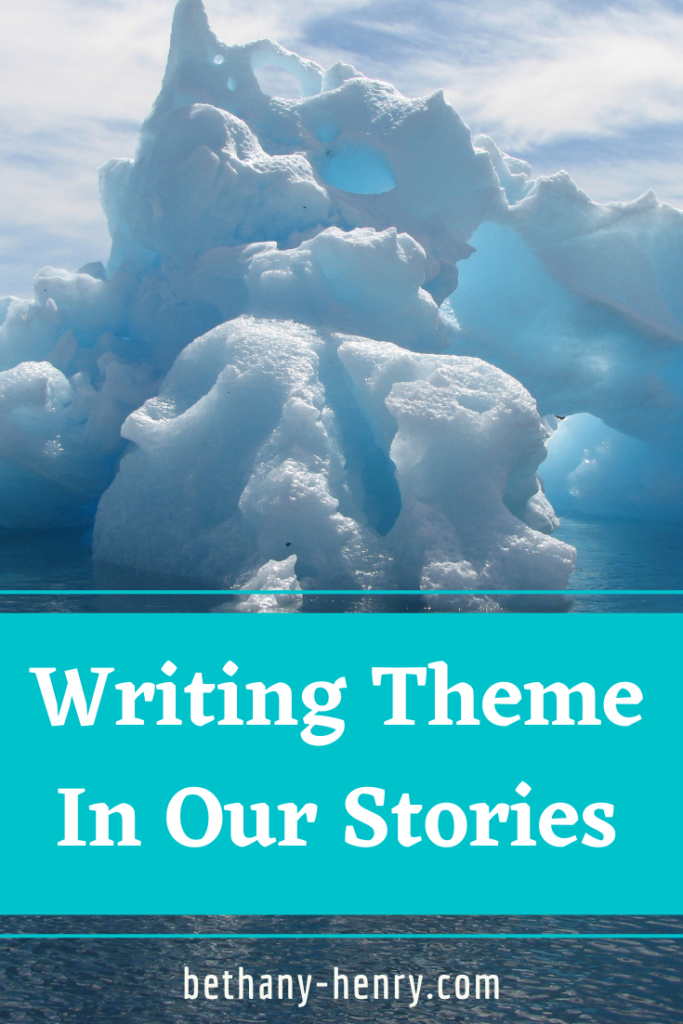Theme in story can be tricky to pin down sometimes.
Sometimes it’s described as what’s “below the surface” of the novel, or the iceberg that is mostly hidden below the water.
A story’s theme is also referred to its “soul” or its “core.” Basically it means what a story is about, its universal theme, or its underlying central idea. It may be what you would say if you were asked to sum up a story in five words or less: for example a theme could be something like “love never fails,” “power corrupts,” or “loyalty.”
(Any of those sound familiar from high school English class? 😉 )

Sometimes theme can be overlooked in our writing because it may seem vague or less measurable than the plot points of story structure, our characters, and the details and maps of our worldbuilding.
However, theme connects and works through all of these things and should be given attention in its own right.
Writing Theme In Our Stories
Keep in mind that authors like to have a theme in mind before they start writing their story, others just write their drafts and see what themes emerge. Just like the plotter or pantser debate, there is no “right” or “wrong” answer here.
Doing some brainstorming and self-evaluation regarding your own writing habits can be helpful in developing your approach.
It may also be valuable to reflect on what stories tend to resonate with you- are there certain themes you tend to gravitate toward or shy away from? If you find yourself wanting to tell stories centered around similar concepts, these may be thematic hot spots for you to pursue further.
Identifying Theme
Whether you’re still in the brainstorming stages or have already written your story and are revising, do you know what your story’s theme is? How can you tell?
If someone asked you “what is the story really about?” – do you know what would you say?
What do you want readers to take away from your story? What do you want them to feel?
Writing Theme
Our story’s theme can be extremely powerful when connected with the story plot, character arcs, and worldbuilding. Therefore, taking time to evaluate each of these areas in relation to our theme can then help us tie everything together.
For instance, a theme of “power corrupts” can have an overarching plot related to corruption, show individual characters (both main and side characters) and each of their responses to the seduction of power, and the worldbuilding can set a backdrop to emphasize these messages.
Some themes will be more obvious than others and each approach may be different so find what works for you and for the story you are trying to tell.
For further reading:
How To Develop Your Story’s Themes – Well Storied
What Is The Theme Of Your Story? A Guide For Authors – Reedsy
How To Write Unique Themes – Helping Writers Become Authors
5 Places To Find Your Novel’s Theme – Fiction University
Theme doesn’t have to be something to be scared or worried about- it’s just another aspect of storytelling we can utilize to enrich our writing.
Once we start being more aware of theme, we’ll start to recognize it everywhere! And it will be easier to use and strengthen it in our own work as well.




